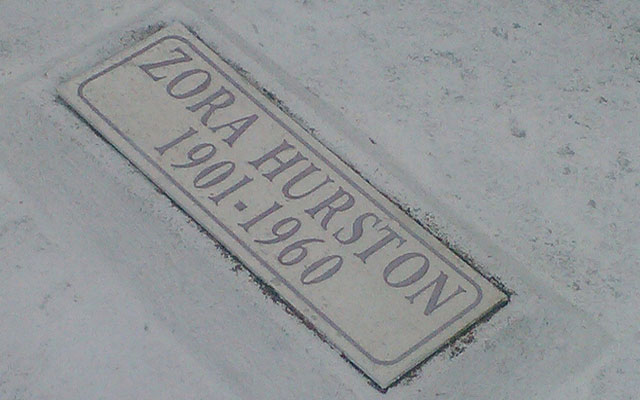Today is what would have been Zora Neale Hurston’s 124th birthday. That would be a ridiculously long time for anyone to live, but luckily we’ve still got her words. The famed Harlem Renaissance writer was born in Florida in 1891 and died in relative obscurity in 1960 after a career that’s most notable for her 1937 novel, "Their Eyes Were Watching God."
Nearly 10 years before that publication, in 1928, Hurston published an essay in "The World Tomorrow" called "How It Feels to Be Colored Me." It’s equal parts hilarious and profound, and it seems a fitting way to remember what she added to America’s dialogue on race. Here it is, republished by the Fellowship for Reconciliation (FOR):
I am colored but I offer nothing in the way of extenuating circumstances except the fact that I am the only Negro in the United States whose grandfather on the mother’s side was not an Indian chief.
I remember the very day that I became colored. Up to my thirteenth year I lived in the little Negro town of Eatonville, Florida. It is exclusively a colored town. The only white people I knew passed through the town going to or coming from Orlando. The native whites rode dusty horses, the Northern tourists chugged down the sandy village road in automobiles. The town knew the Southerners and never stopped cane chewing when they passed. But the Northerners were something else again. They were peered at cautiously from behind curtains by the timid. The more venturesome would come out on the porch to watch them go past and got just as much pleasure out of the tourists as the tourists got out of the village.
The front porch might seem a daring place for the rest of the town, but it was a gallery seat to me. My favorite place was atop the gate-post. Proscenium box for a born first-nighter. Not only did I enjoy the show, but I didn’t mind the actors knowing that I liked it. I usually spoke to them in passing. I’d wave at them and when they returned my salute, I would say something like this: "Howdy-do-well-I-thank-you-where-you-goin’?" Usually the automobile or the horse paused at this, and after a queer exchange of compliments, I would probably "go a piece of the way" with them, as we say in farthest Florida. If one of my family happened to come to the front in time to see me, of course negotiations would be rudely broken off. But even so, it is clear that I was the first "welcome-to-our-state" Floridian, and I hope the Miami Chamber of Commerce will please take notice.
(Read the rest after the jump)
